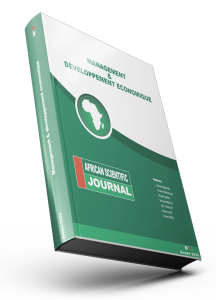Religiosity and the adoption of sociological concepts in the management of the participatory financing relationship of SMEs
DOI:
https://doi.org/10.5281/zenodo.7292182Keywords:
Participative bank, Information asymmetry, Social network, Trust, ReligiosityAbstract
Information asymmetry is the main cause of credit rationing for SMEs. This asymmetry problem is accentuated when it comes to participatory banks, since they risk their income and capital because of the mode of intermediation they follow. Thus, the participatory bank will be more demanding as to the reliability of the entrepreneurs requesting funds. Through a literature review and by adopting the social embeddedness approach, we will try, on the one hand, to analyze the role of the religiosity of the applicants for funds in the reduction of the information asymmetry by considering that a religious borrower is a trustful and honest person who behaves according to the commandments of his religion when it comes to economic transactions. And on the other hand, to show how the integration of bank advisors (as a personal matter but for professional purposes) in the networks of religious people, which are groups governed by common values, can reduce the information asymmetry. We can say that religiosity stimulates trust and allows the easy constitution of networks where all members behave according to the group values, thus reducing information asymmetry. And the integration of bank advisors into religious networks allows them easy access to information about individuals, since reputation is easily formed between members of a social network.
Downloads
Published
How to Cite
Issue
Section
License
Copyright (c) 2022 African Scientific Journal

This work is licensed under a Creative Commons Attribution-NonCommercial-NoDerivatives 4.0 International License.





















